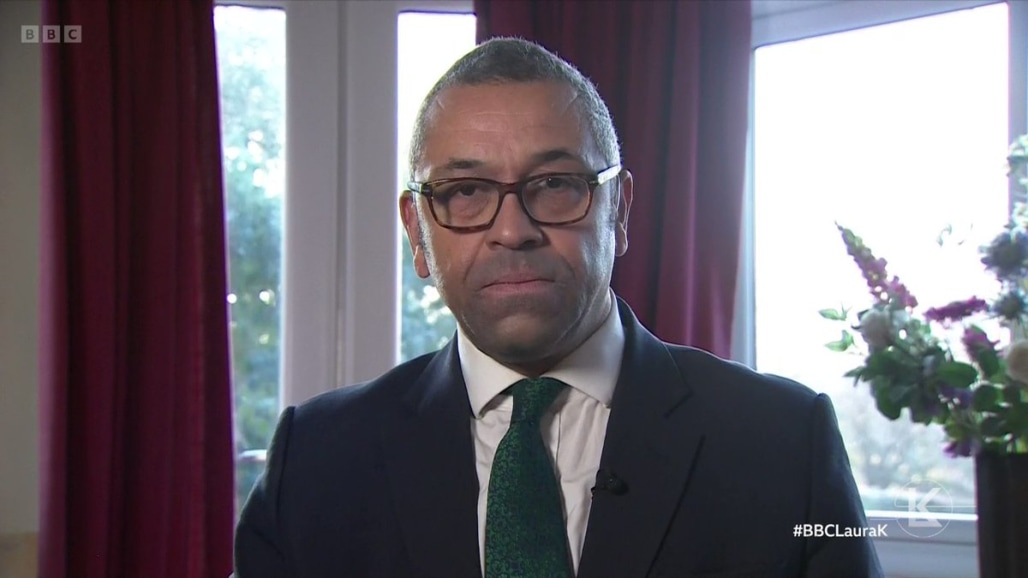The political question
Politicians struggle to gain a reputation for straight-talking. But whose fault is that?
They say you get the politicians you deserve. But that adage originates with Thomas Jefferson who was unaware of the modern-day television interview.
Increasingly, political interviewers ask questions in a form designed to put the interviewee in an embarrassing position, rather than to elicit information that might help the audience. Take this example put to Rishi Sunak by BBC Breakfast last year shortly after, as Chancellor of the Exchequer, he had announced grants to offset the high cost of energy: “Does it feel right ... that someone like you is receiving this £400 grant?”
The context of the question is that, as a Cabinet Minister, Sunak personally is a high earner. And his wife is famously – and fabulously – wealthy. So they didn’t need the £400. Was it right or fair that they should be included?
But the inescapable fact is that the State doesn’t have any way of knowing which of its citizens deserve a £400 grant and which of us don’t. It’s an easy mistake to think the Government could channel a grant through the income tax system. After all, they do, at least, know how much we earn. But if they had done that, four young, single people sharing a house would receive the grant four times over, whilst a single parent with three children would have to cope with only a quarter of that (and the family would probably be at home, needing their heating on, much more of the time than a group of young singles). Pensioners and others with no tax to pay would not get anything.
Instead of wrapping the question inside an assumption that the scheme was designed thoughtlessly – or worse, deliberately – to hand out money to the rich, why couldn’t the BBC ask, in a neutral fashion, “Can you explain to our audience why the rebate has gone to every household?”
Another technique, which is very effective at making politicians look shifty, is to direct a question at someone who cannot possibly answer. Laura Kuenssberg, who recently inherited the BBC’s flagship Sunday morning politics show, is revealing herself to be fond of the device.
This past week, there have been reports about the private tax affairs of the Conservative Party Chairman, Nadhim Zahawi. He has admitted to making a “careless” error. Unsurprisingly, Kuenssberg has lots of questions that she wants to ask him. But she wasn’t able to get him on her Sunday show. Instead, she was facing the Foreign Secretary, James Cleverly. At the end of a week in which Cleverly had been trying to persuade foreign leaders to send tanks to Ukraine – there’s a war on, don’t you know – Kuenssberg thought it made sense to ask him “Why doesn’t he [Zahawi] get it [his tax affairs] all out there?” along with other questions for which Zahawi had plainly neither confided the answers to Cleverly nor given him authority to speak about on his behalf.
Kuenssberg may be entitled to draw inferences from Zahawi’s reluctance to put himself forward for interview. So might we, the audience. But we deserve better than to have someone who isn’t Zahawi made to look evasive - and making himself look foolish - for not being privy to all of his colleague’s tax affairs.

It’s not just the governing party which comes in for this treatment. A couple of months ago, John Ashworth, Labour’s Shadow Work and Pensions Secretary, was asked by Kuenssberg how much money a Labour Government would have given the NHS if it were currently in power. It was an absurd question. Not only because NHS funding is no part of the Work and Pensions brief, but also because we expect the Opposition to prepare policies for when they will be in power, not retrospective policies for periods when they were out of power. But that didn’t stop the question being repeated three more times when Ashworth didn’t answer.
The BBC isn't alone. One week earlier, Channel 4’s Andrew Neil challenged a government minister over the raising of income tax in that week’s Autumn Statement. “It’s another broken promise”, said Neil. But this was the weekend before the Autumn Statement. Nothing had yet been announced. And the interviewee, Alex Chalk, was not from the Treasury. He is a junior minister from the Defence Department. What could he possibly say about a tax policy which the Chancellor hadn’t even published yet?
It's no wonder the political class struggles to establish a reputation for straight-talking. Our politicians deserve better television interviews. Only then, will the public deserve the politicians that we get.




Hi Simon, thanks for these irregular thoughts in various meanings of the terms. I think we get the interviewers we deserve as much as we do the politicians but as professionals politicians ought to be able to deal with interviewers as that is a key part of their job. Maybe this is why Nicola Sturgeon felt that she has nothing left in her tank in that she could no longer command the interview as she had been doing until recently; partly I think as she did not, in her heart, support the gender recognition bill and realised that she could no longer keep up a façade of support on that issue.
100% agree. But how can we get interviewers to change or interviewees to politely challege the question?